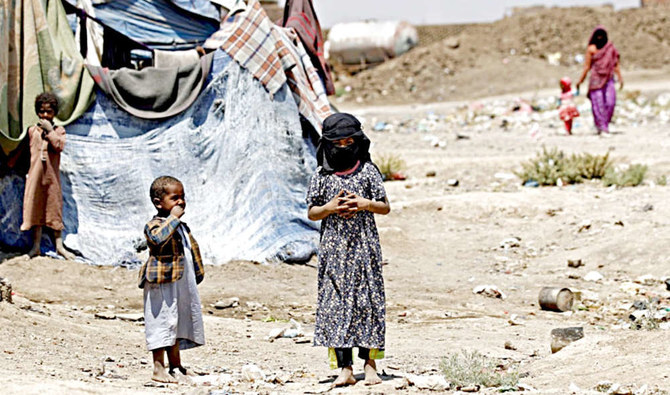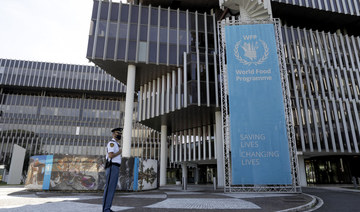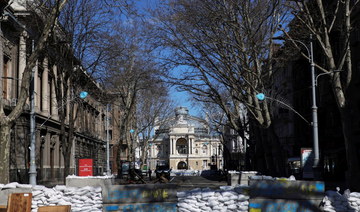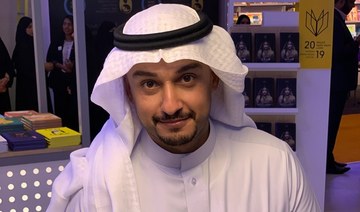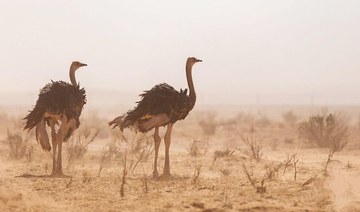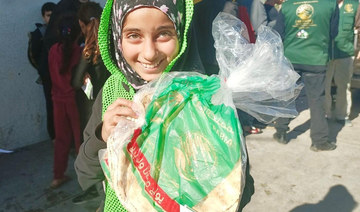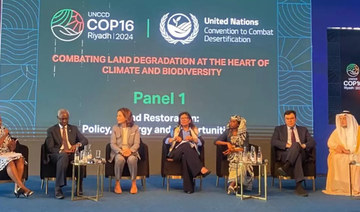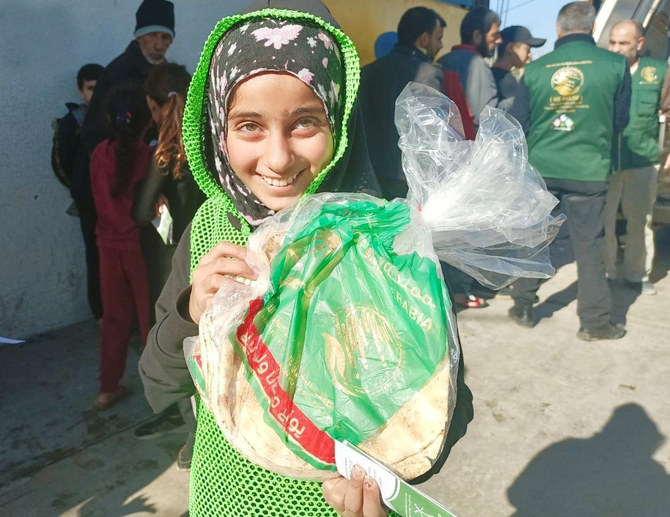RIYADH: The UN World Food Program’s representative in Yemen has hailed crucial Saudi efforts in helping the organization to meet the war-torn country’s urgent sustenance needs.
In an exclusive interview, Richard Ragan told Arab News that the Kingdom had played a vital part in maintaining food supplies to the Yemeni people.
The country director said: “The role of Saudi Arabia is one of the most important if not the most important, it’s a neighbor. So clearly, it’s in the interest of Saudi Arabia to have a stable border.
“The humanitarian assistance that we have been provided with by the Saudis in the past has been critical. They are essential in terms of financial partner, humanitarian partner, political partner.
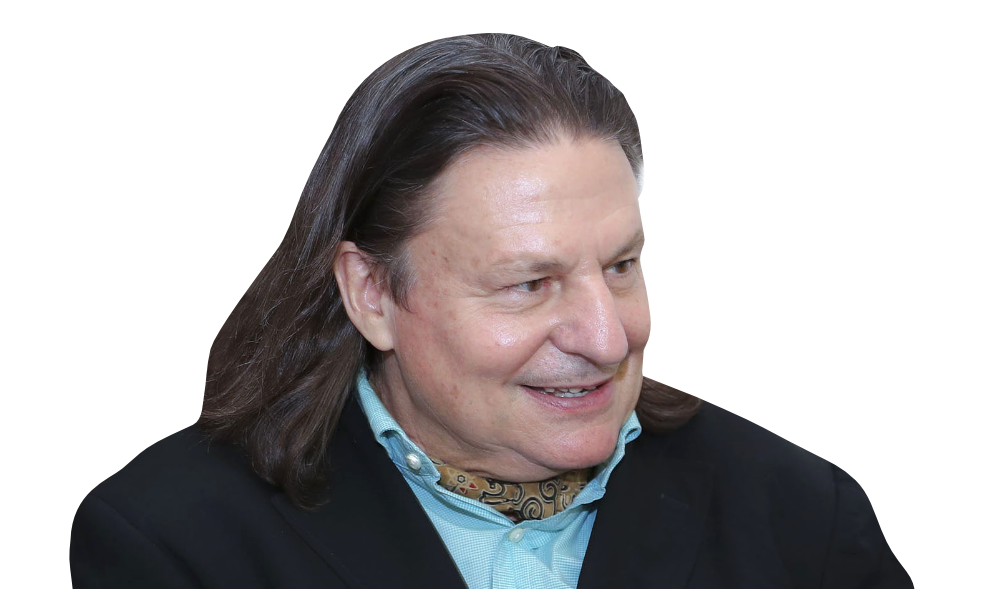
WFP Country Director in Yemen Richard Ragan speaking to Arab News. (AN photo by Ali Mohammad Aldhahri)
“We really can’t do the kind of program that we need to effectively run in Yemen without the partnership with Saudi Arabia. So that’s why I am in the Kingdom. It’s the first country I have visited since I took charge three months ago. For me, it’s the most important place,” he added.
Ragan also singled out the King Salman Humanitarian Aid and Relief Center for special praise.
He said: “KSrelief is important in the humanitarian world; they are unique. Most of our partners just give money, but the KSrelief is different; they do projects. They are present in Yemen and very knowledgeable about the dynamics that are going on, particularly in the southern part of the strife-torn country.”
The UN official noted that the WFP viewed the center important in two ways, “as partners to do the work, who are very knowledgeable about how to execute effective programs, and also as very good financial partners.”
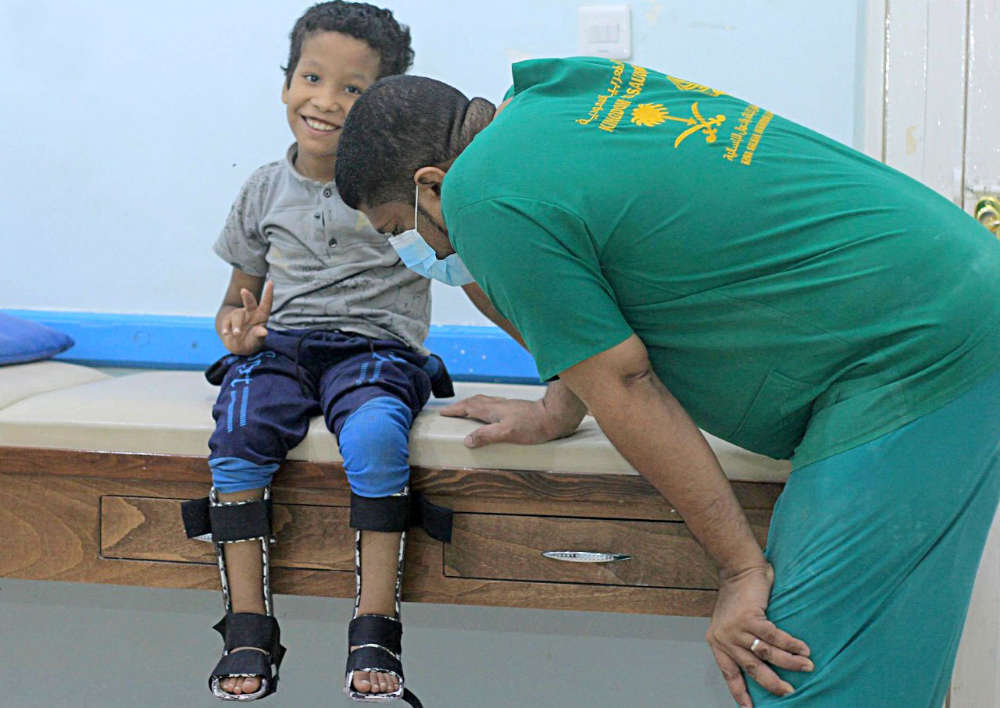
Richard Ragan noted that among major donor countries, Saudi Arabia had always been one of the most generous. (Supplied)
He added: “After seven years of war, nothing works in Yemen, the state has in many ways ceased to function. So, without the kind of work that KSrelief does in the healthcare sector, millions of people would go without healthcare. So, it’s one of the real fundamental things.”
On the current situation in Yemen, he said: “For the UN World Food Program, we are feeding slightly over half of Yemen’s population. For us, it’s the biggest program in the world, it’s the biggest program that, historically, WFP has ever run. So, the scale of what we have been trying to do, to keep people alive with food in Yemen, is pretty immense.”
Ragan noted that he had been living in Yemen for three months. “But the one thing I think that is most evident is that there is hope because of the truce. I think Yemen is at a crossroads after seven years of war. And that crossroads is either to return to war, strife, and conflict or to take the other path and move toward peace.
“We really can’t do the kind of program that we need to effectively run in Yemen without the partnership with Saudi Arabia. So that’s why I am in the Kingdom. It’s the first country I have visited since I took charge three months ago. For me, it’s the most important place”
Richard Ragan, UN World Food Program’s representative in Yemen
“So far, it seems like the truce is holding; there are small incidents where there’s conflict. There was an unfortunate attack three days ago in Taiz, where people were celebrating, a building was attacked next to a park, and some people were killed. That’s the sort of thing that’s not good for a truce,” he added.
He pointed out the progress of confidence-building measures negotiated between parties in the UN.
“Fuel ships are discharging in the port, so that the gas shortages that were evident from Jan. 1 through to the end of March have abated, which for us at the WFP was also critical because we weren’t really able to do our work without fuel.”
A two-month ceasefire was announced in April as agreed by warring parties in Yemen.
Ragan said: “We needed fuel, so that part of the puzzle has been answered. I would say our ability to kind of function in the country and deliver food, even during the conflict, has been pretty good. We are feeding between 10 and 15 million people per month.”
In addition to providing people with food, he highlighted the work going on to run the airport for humanitarian needs.
“We have something called the UN humanitarian air service, including for NGO (non-governmental organization) partners and UN agencies. It’s a really big part of what air traffic is going into the country. We also have vessels that we move back and forth from Jeddah that carry humanitarian supplies for people.
“We do a broad range of things that aren’t just about food. We run the telecommunication services for the UN agencies and NGO partners. So, it’s big and it’s an expensive program for the WFP.
“It’s about the equivalent of $200 million per month to do our complete body of work. The funding, part of our operations this year, has not been as generous. So far, we have raised 25 percent of what we need. So, we have to start cutting rations into groups,” he added.
Ragan noted that among major donor countries, Saudi Arabia had always been one of the most generous, besides the US and Germany. “The GCC (Gulf Cooperation Council) states have been there with us so far, and we are hopeful that it’s coming pretty soon for the future.”
The UN’s Humanitarian Response Plan, recently announced for this year, was seeking around $4 billion in contributions, of which the WFP makes up half.
He said: “In previous years, we have made up more than half of it because food is clearly the most important, and we are feeding people, we bring in wheat in the port. We mill it as fast as we get it. And then it’s out, so we don’t even have stocks that we can store. The requirements are so big.
“I have been in the WFP for 22 years and have managed some of our biggest operations in the world, but nowhere nearly as big and complicated as what we are doing in Yemen.”
Ragan pointed out that the conflict in Ukraine was having an impact on the entire world.
“Yemen is, unfortunately, one of the places that it’s going to have the biggest impact because you are already looking at an economy that’s anemic, you are looking at a population that has almost no buying power. There are over 4 million people who have been internally displaced because of the conflict.
“My most urgent message to the world is please don’t forget Yemen. It’s still one of the potentially biggest catastrophes on the planet. The world’s attention is shifted to Ukraine. But don’t forget Yemen because there is a real opportunity for peace.
“This is the first time since the conflict started, where there is more hope for peace, the people that I have talked to, that’s what they want.
“Certainly, the citizens of Yemen want it. They are tired of conflict, they are tired of bombings, they want to be able to educate their kids, and they want to be able to visit their relatives.
“They are desperate to be able to move, just to do the basic things that we enjoy that they can’t. So, I think there is a lot of hope on the part of the average Yemeni that this conflict is going to stop,” Ragan added.




